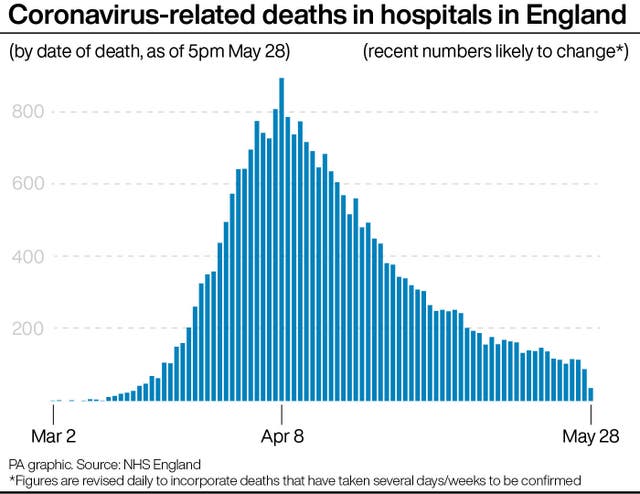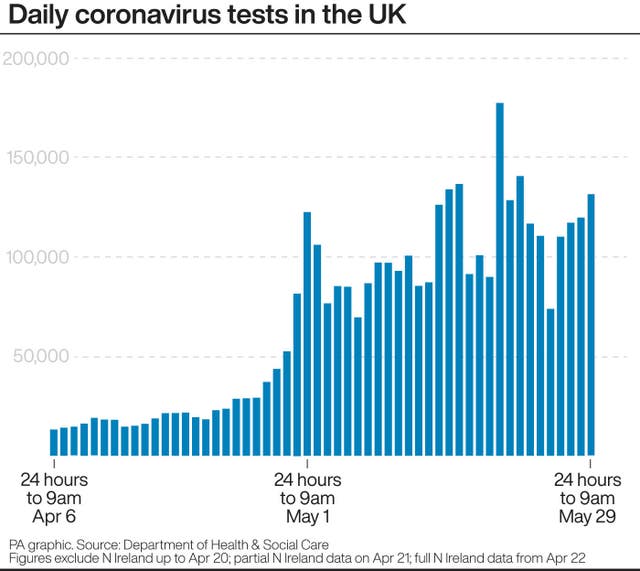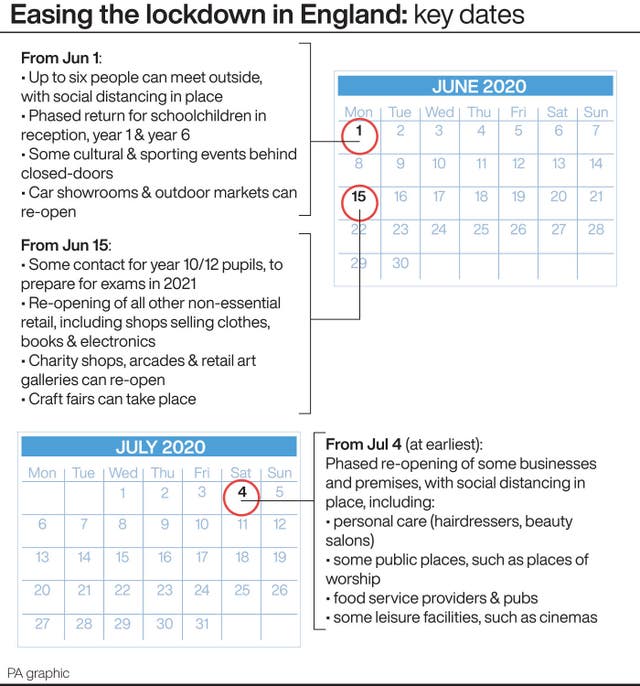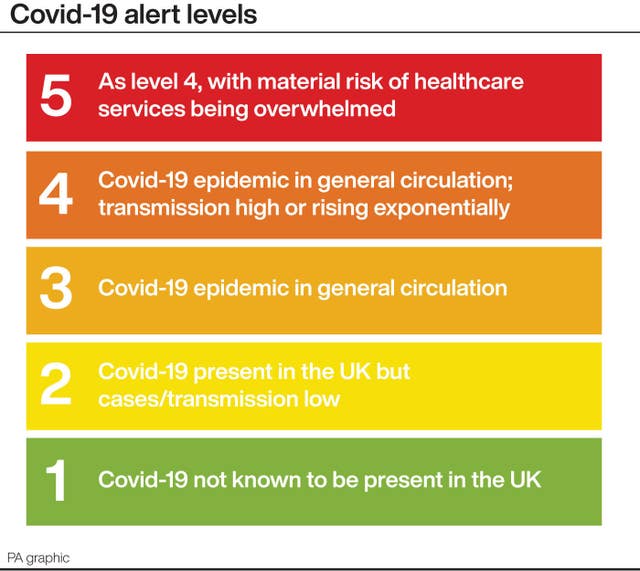Top scientists say its too early too ease lockdown amid fears over warm weekend
Police have urged the public to maintain current safeguards about social contact ahead of the lessening of restrictions next week.
Government advisers have voiced concerns that plans to ease lockdown measures from Monday have come too soon and could cause a spike in the spread of coronavirus.
Scientists Sir Jeremy Farrar and Professor John Edmunds, both members of the Scientific Advisory Group for Emergencies (Sage) – which advises the Government on the Covid-19, said ministers were taking risks by allowing the gradual reopening of shops and schools and larger gatherings to meet in private.
Sir Jeremy also said the newly-introduced NHS test-and-trace system needed to be “fully working” before measures were eased.
Meanwhile, a tranche of papers released by Sage revealed advice given to the Government in April said it was “likely” the R-value – the average number of people that will contract coronavirus from an infected person – would go above one should non-essential shops be reopened.
The comments come as Britain is set for a weekend of high temperatures ahead of lockdown restrictions being eased which will allow up to six people to meet outside if social distancing is observed from Monday.
Police have urged the public to maintain current safeguards about social contact ahead of the lessening of restrictions next week.
In the Twitter post, Sir Jeremy said: “Covid-19 spreading too fast to lift lockdown in England. Agree with John & clear science advice.
“TTI (test, trace and isolate) has to be in place, fully working, capable dealing any surge immediately, locally responsive, rapid results & infection rates have to be lower. And trusted.”

A document on a Sage meeting from April 13, released on Friday, showed how the Scientific Pandemic Influenza Group on Modelling (SPI-M) that advises the Government warned against reopening shops and leisure facilities.
The document said: “There is limited evidence on the effect of closing of non-essential retail, libraries, bars, restaurants, etc, but it is likely that R would return to above 1 and a subsequent exponential growth in cases.”
Downing Street warned the public that the meet-ups remain prohibited until after the weekend, with Britain set for hot and sunny weather over Saturday and Sunday.
The Lake District National Park Authority has urged people to “show care and consideration for everyone who lives and works” in the area, while Dorset Police has told people to “go home or elsewhere” if an area looks too busy.
It came after Chancellor Rishi Sunak said self-employed workers will be eligible for a second and final coronavirus grant.
Mr Sunak confirmed that employers must start paying towards the wages of furloughed staff from August.
Rishi Sunak said the schemes had been a “lifeline” for millions of people and businesses, but that as the country comes through the “other side” of the Covid-19 crisis, it was time to adjust them to “ensure those who are able to work can do so”.
He has extended the self-employment income support scheme – which has so far seen 2.3 million claims worth £6.8 billion – enabling freelancers to access grants of up to £6,570 from August. Individuals could claim up to £7,500 under the first grant, which launched earlier this month.
And the Chancellor said that businesses will have to start paying National Insurance and tax contributions for staff in August, ramping up to 10% of furloughed wages in September and 20% in October.
Employees on furlough will keep getting 80% of their wages up to £2,500 a month.
Shadow chancellor Anneliese Dodds welcomed the extension, but said it was “concerning that there is no commitment within these plans for support to only be scaled back in step with the removal of lockdown”.
Elsewhere:
– The total number of UK deaths involving Covid-19 has now passed 48,000.

– British Transport Police said that no further action is being taken by the force over the death from coronavirus of railway worker Belly Mujinga.
– Professor John Edmunds, who attends meetings of the Government’s Scientific Advisory Group for Emergencies (Sage), warned that ministers are “taking some risk” by relaxing lockdown measures while the number of new cases each day remains “relatively high”.
– Scientists advising the Government suggested only around half of people with coronavirus symptoms self-isolate for a week, raising concerns over the ability to prevent future outbreaks.
– Nearly 17,000 fines for alleged breaches of coronavirus lockdown rules have been issued by police in England and Wales, according to figures from the National Police Chiefs’ Council.

Labour’s Ms Dodds said it was welcome that the Government has “heeded Labour’s calls for a more gradual introduction of the employer contribution to furlough, the introduction of flexibility within furlough to allow part-time working, and the extension of the self-employed scheme”.
She added: “However, it is concerning that there is no commitment within these plans for support to only be scaled back in step with the removal of lockdown. Nor is there any analysis of the impact on unemployment of a ‘one size fits all’ approach being adopted across all sectors.
“The Chancellor must publish the evidence behind these decisions to provide reassurance that his proposals won’t cause an additional spike in unemployment, and an even more difficult economic recovery from this crisis.”

Elsewhere, Downing Street said the Joint Biosecurity Centre which manages the coronavirus alert level is still not fully operational.
The Prime Minister’s official spokesman said: “It’s carrying out some of its functions already, including giving support to the chief medical officers. It will be fully operational in the coming weeks.”
The alert level is currently coming down from four to three, he said.